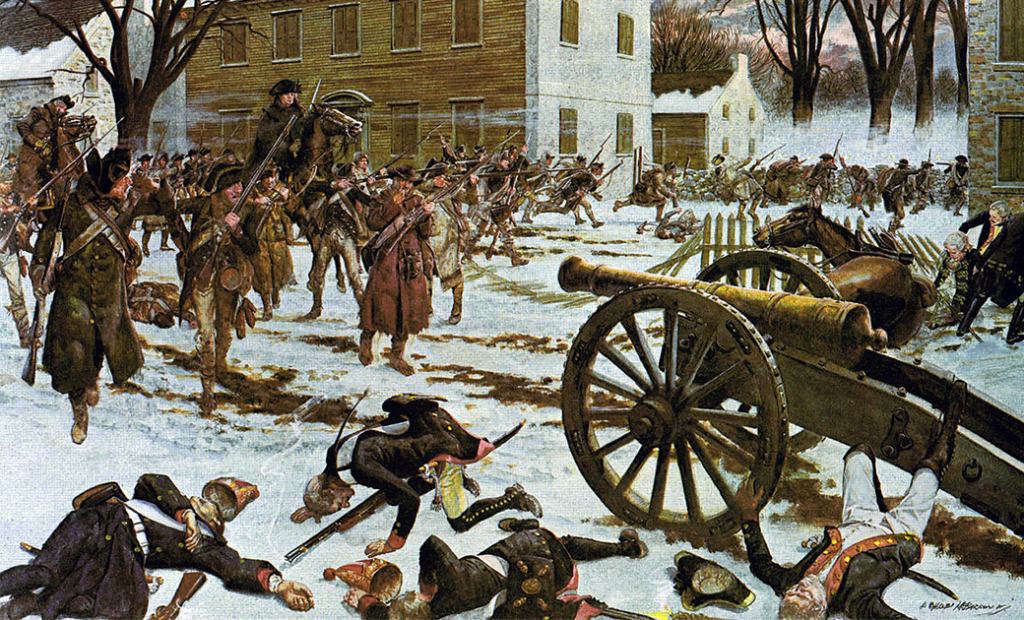
The journey to the Battle of Trenton began on a frigid morning along the edge of the Delaware River. George Washington and his Continental Army felt every bit of the cold as they prepared to transport themselves and their equipment across the frozen body of water. It seemed almost irrational, if not inhumane to attempt this crossing in the freezing cold, on Christmas afternoon no less. However, the Continental Army was desperate for a victory after a series of major defeats and no significant victories. George Washington understood this deeply and had formulated a strategic motion that utilized the unexpected nature of an attack on Christmas day.
Throughout the entirety of Christmas day, temperatures grew colder and the weather conditions grew increasingly unfavorable. These environmental factors caused a delay in departure, with some regiments departing well after dark. Instead of a strong, efficient journey across the river, the troops painstakingly trickled across the water. They arrived at Trenton in the early morning on December 26th, 1776. Washington was worried that they had ruined their factor of surprise, but it was far too dangerous to abandon the attack. So at about 8:00 AM, the Continental Army began their attack.
The army mobilized in three columns of soldiers, guns, horses, and cannons, George Washington himself leading the middle charge. At first the situation looked bleak. The weather was horrendous, the element of surprise was seemingly ruined, and the lack of proper footwear was causing the soldiers’ feet to bleed into the snow. However, as soon as the colonial artillery fired, the Hessians appeared to be caught completely off guard. They were exhausted after being continuously harassed by the American militia and were not expecting an attack the day after Christmas. Colonel Johann Rall rushed to rally his highly trained Hessian troops, but to no avail. They failed to establish an effective perimeter, leading to an extremely important victory for the Continental Army.
The Hessian garrison quickly surrendered, ending the battle in a pitiful state. 22 hessians were killed, 92 were wounded, 400 escaped, and 918 were captured. The Continental Army also left Trenton in possession of a plethora of supplies, including swords, bayonets, muskets, and cannons. They performed admirably in the Battle of Trenton, but Washington knew the danger that resting for too long would entail. Soon after their return to camp, he began to plan his next engagement in Princeton.
Explore More Stories
75th Anniversary of the Battle of Iwo Jima
Battle of the Bulge: The Greatest American Battle of the War
Korean War: Battle of Pork Chop Hill (Hill 255)



